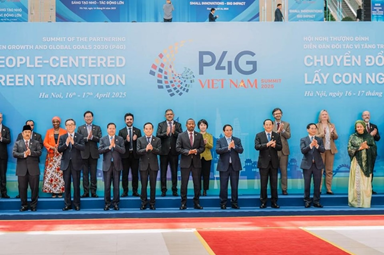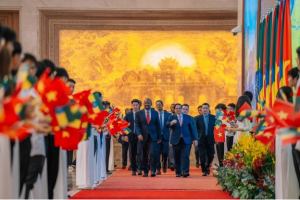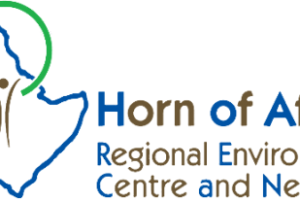
The effects of climate change are obvious in severe weather events like floods and droughts, which can destroy communities and disrupt people’s means of living.
As environmental changes lead to the depletion of resources, competition for vital necessities like water and arable land is likely to escalate, heightening the risk of conflict. Additionally, climate-related disasters can worsen health conditions, leaving populations more susceptible to diseases. The consequences of climate change may even double the mortality rates linked to these health issues.
Due to various causes, the developed nations have failed to prevent and minimize the impact of climate change, such as their economies being highly based on smoking industries that facilitate the adverse effects of climate change on the globe. Mostly, these adverse impacts are severe on underdeveloped countries.
Reports indicated that the harmful consequences of climate change, particularly in Africa, are worsened by the disengagement of industrialized countries. Approximately half of the population in the Global South is affected by climate-related issues, and the existing disparities among these regions hinder the implementation of effective mitigation strategies.
For nearly three decades, global leaders have convened to address the root causes of climate change while fostering sustainable development. Yet, tangible and effective solutions remain elusive. There is a notable failure to fulfill commitments made at international gatherings, including COP meetings.
Additionally, the international summits pledges for climate action and financial support are often made but not fulfilled.
Some researchers have described international climate meetings, such as COP, as ineffective and merely symbolic, as well as used as paper tigers. This predicament is particularly dire for developing and underdeveloped countries, which often face a lack of resources and inadequate infrastructure.
According to the reports, Africa accounts for only 3.8% of global greenhouse gas emissions, in stark contrast to 23% from China, 19% from the United States, and 13% from the European Union. Despite this minimal contribution, Africa is extremely vulnerable to the effects of climate change, widening the gap between nations and exacerbating vulnerabilities that hinder progress toward sustainability.
According to World Health Organization (WHO) data, approximately 2 billion people do not have access to safe drinking water, and 600 million suffer from foodborne illnesses each year, with 30% of foodborne fatalities occurring among children under five. In 2020, 770 million people, primarily in Asia and Africa, experienced hunger. Climate change further complicates nutritional challenges, impacting the diversity, quality, and availability of food.
In 2022, more than 110 million people in Africa felt the direct effects of weather-related hazards, resulting in economic losses exceeding $8.5 billion and around 5,000 deaths, mainly due to drought and flooding, as reported by the Emergency Event Database. Research indicates that 3.6 billion people currently live in areas highly susceptible to climate change. From 2030 to 2050, climate change is projected to cause an additional 250,000 deaths annually due to malnutrition, malaria, diarrhea, and heat stress.
To tackling these challenges, many vulnerable countries are grappling with this daunting challenge, employing a variety of actions and initiatives to address the issue. One approach being utilized to mitigate the impacts of climate change is tree planting.
In this regard, Ethiopia is actively pursuing a green economy aimed at mitigating the effects of climate change while enhancing agricultural productivity by rehabilitating degraded lands throughout the nation. Additionally, the country is focused on initiatives that promote food security and foster lasting peace by creating job opportunities, all of which contribute to achieving sustainable development goals.
In the past five years, Ethiopia has planted over 40 billion seedlings nationwide. This effort includes agroforestry and cash crops that bolster the country’s food sovereignty.
Recently, the world ladders are summited in the 4th P4G Summit in Hanoi, Vietnam, aimed to Partnership for Green economy Growth and the Global Goals 2030 (P4G) Summit has served as a crucial platform for uniting efforts to promote sustainable growth, encourage innovative collaborations, and fulfill the commitments of the Sustainable Development Goals.
During his speech at the conclusion at the summit, Prime Minister Abiy expressed his appreciation for receiving the recognition that positions Ethiopia as the host for the 5th P4G Summit in 2027.
He stated, “We grab this opportunity with resolve and a steadfast commitment to build upon the inspiring legacies of Vietnam, Colombia, Denmark, and South Korea,” highlighting P4G’s principles of partnership, innovation, inclusivity, and action.
The upcoming summit in Ethiopia will focus on green industrialization, climate resilient agriculture, and empowering youth and women as vital drivers of change in the transition to a sustainable economy, he noted.
He remarked that this gathering transcended mere discussions, serving instead as a focal point for collective efforts to advance green growth, stimulate innovative partnerships, and fulfill Sustainable Development Goals.
“Over the past few days, we have witnessed the strength of unity and diversity, with governments, businesses, and civil society joining forces to promote clean energy, the circular economy, climate smart agriculture, and inclusive development,” he stated.
While acknowledging Ethiopia’s vulnerability to climate change, he asserted, “We are also among the most dedicated. We have charted an ambitious path toward a climate resilient, Net Zero economy by 2050, aligned with the 2030 Agenda and the African Union’s Agenda 2063.”
Prime Minister Abiy underscored Ethiopia’s commitment to its climate-resilient green economy strategy, the Green Legacy Initiative, and its growing renewable energy sector. “No nation can tackle the climate crisis in isolation; addressing this challenge requires collective leadership and prompt action,” he urged.
Ethiopia has steadfastly embraced the ideals of the P4G partnership and has actively contributed to the initiative since its launch in 2018.
“We recognize its unique role as a bridge between public policy and private sector innovation, facilitating collaborative projects in food systems, renewable energy, resilient urban development, and the circular economy. We have seen the possibilities when we work together,” he stated.
As a founding member of P4G and a participant in key climate agreements, Ethiopia remains dedicated to promoting green recovery and sustainable development, Prime Minister Abiy affirmed.
“As we leave Hanoi, let us carry forward the spirit of partnership, the drive for ambition, and the belief that green growth is not a distant aspiration, but a shared necessity,” he urged.
BY FIKADU BELAY
THE ETHIOPIAN HERALD TUESDAY 22 APRIL 2025





